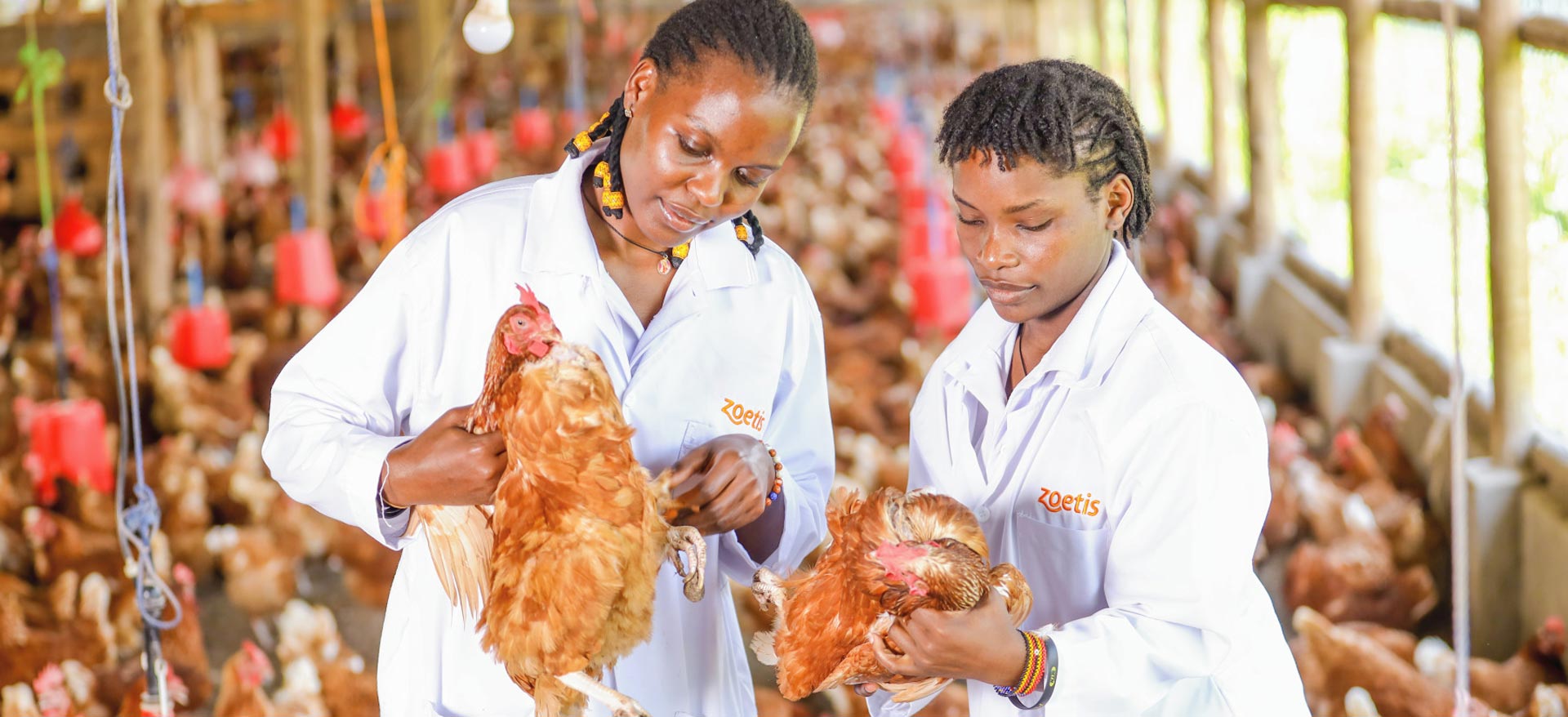
Access to Veterinary Care in Emerging Markets
In line with our purpose to nurture our world and humankind by advancing care for animals, we support customers in underserved rural communities working to predict, prevent, detect, and treat illness in animals and to address unmet medical needs. Through this support, we can expand access to preventative tools and early detection of disease, reducing the need for antimicrobials in livestock.
Our work to improve livestock health and positively impact farmers’ livelihoods in Sub-Saharan Africa (SSA) launched in 2017 through our African Livestock Productivity and Health Advancement (A.L.P.H.A.) initiative, co-funded with the Bill & Melinda Gates Foundation (BMGF). The five-year initiative began in Uganda, Nigeria and Ethiopia, and later expanded into Tanzania. It strived for gender equality in animal health training and was anchored on three pillars: veterinary medicines and services, veterinary laboratory networks, and training and education.
The A.L.P.H.A. initiative came to a close in August 2022, and all activities were transitioned to the commercial operations of the broader SSA. In 2023, with continued support from the BMGF, we launched a new initiative that scales up our initial A.L.P.H.A. efforts. To learn more about A.L.P.H.A.'s most recent progress, click here.

The new five-year A.L.P.H.A. Plus has an extended focus to cattle and aquaculture in addition to poultry and expanded geographical coverage to seven additional countries in SSA: Kenya, Rwanda, Ghana, Zambia, Zimbabwe, Senegal and Ivory Coast. In this initiative, we aim to drive progress against three major areas over the next five years.
Increased access to an expanded portfolio of quality veterinary medicines, vaccines and services
Expand sustainable diagnostic services, with data-driven decision making
Scaling of the last-mile service delivery network